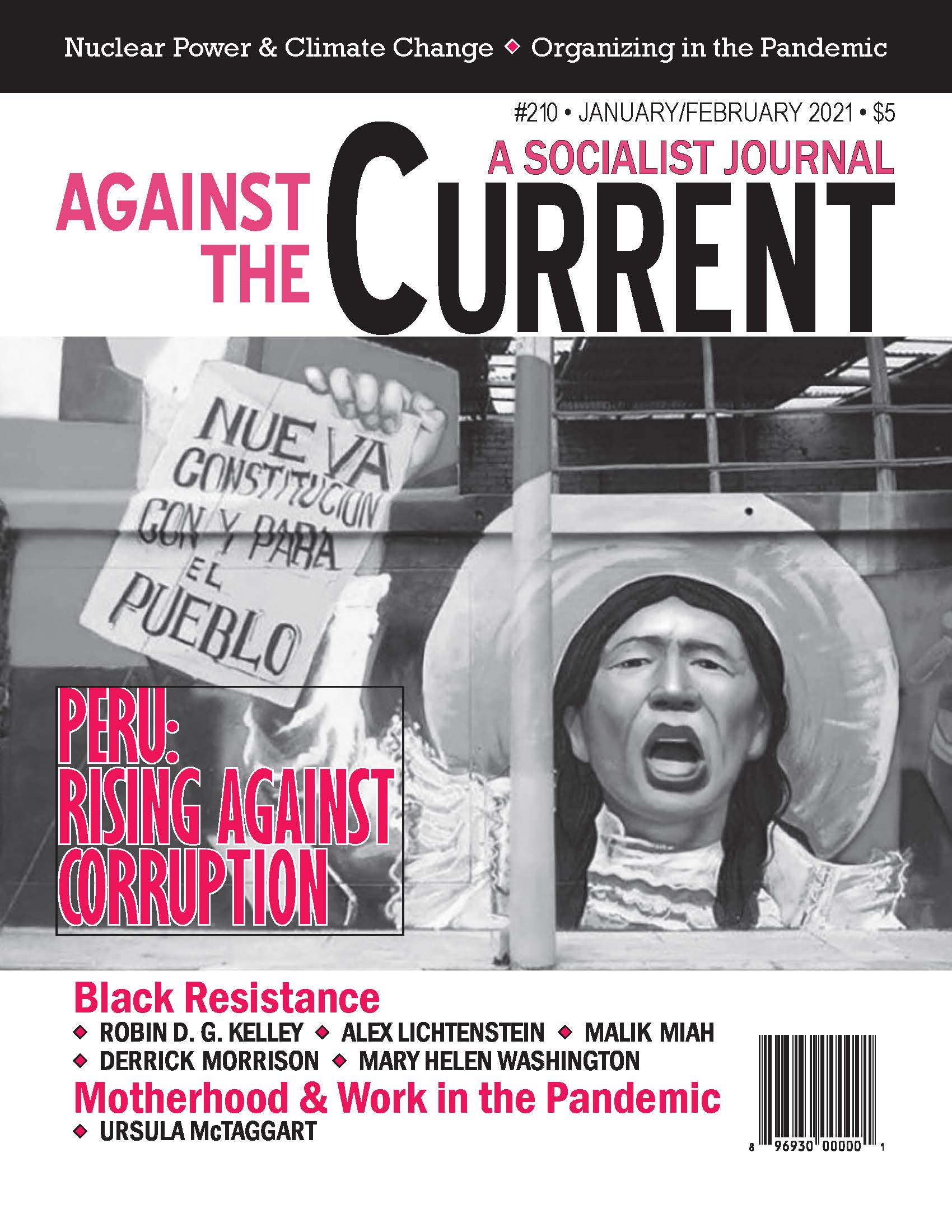Against the Current No. 210, January/February 2021
-
The 21st Century Plague
— The Editors -
Nuclear Power and Climate Change
— Ansar Fayyazuddin -
Motherhood and Labor in the Pandemic
— Ursula McTaggart -
Building a Union Campaign
— an interview with Dawn Tefft -
Peru: Rising Up Against Corruption
— an intervew with Andrea Palacios -
Behind the Indian Farmer's Strike
— Aditya Nigam - Black Resistance
-
New Challenges for African Americans
— Malik Miah -
Freedom Struggle a Labor Struggle, Then & Now
— Robin D. G. Kelley -
James Baldwin for Our Time
— Mary Helen Washington -
The American Caste System
— Malik Miah -
The U.S. South and Labor's Fate
— Alex Lichtenstein -
Recovering William Monroe Trotter
— Derrick Morrison - Reviews
-
The Trauma of Domestic Violence
— Giselle Gerolami -
When Science Meets Capital
— Guy Miller -
Hong Kong: An Uprising and Its Fate
— Promise Li -
Indonesia as Testing Ground
— Allen Ruff -
Charting New Paths: The Comintern in 1922-1923
— Tom Twiss -
Livio Maitan: A Life in the Revolution
— John Barzman - Cultural Notes
-
On the Life of Justin Townes Earle
— Alexander Billet
The 21st Century Plague
— The Editors
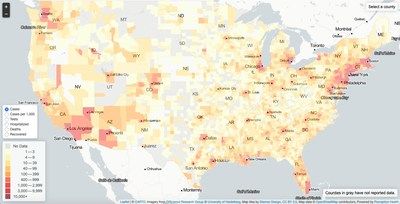
THE CALAMITOUS MALFEASANCE of the outgoing Trump regime’s response to the coronavirus pandemic threatens to obscure deeper realities of this global as well as U.S. crisis. The incoming Biden-Harris tem faces a deeper and more menacing emergency of both public health and the economy than the 2008-09 financial meltdown that confronted president Obama’s first year....
Nuclear Power and Climate Change
— Ansar Fayyazuddin

NUCLEAR REACTORS AS sources of electrical power date back to the late 1940s, when Soviet scientists first harnessed heat produced as a by-product of plutonium production to generate steam to drive electricity-producing turbines. From these ignominious beginnings in weapons production, nuclear reactors were quickly elevated to a “peaceful” and socially beneficial technology by the propaganda machines of both belligerents of the Cold War.
In this carefully crafted public image, nuclear power came to represent science with the aura of magic — it would be, in the famous and now discredited words, an energy source “too cheap to meter.”6...
Motherhood and Labor in the Pandemic
— Ursula McTaggart
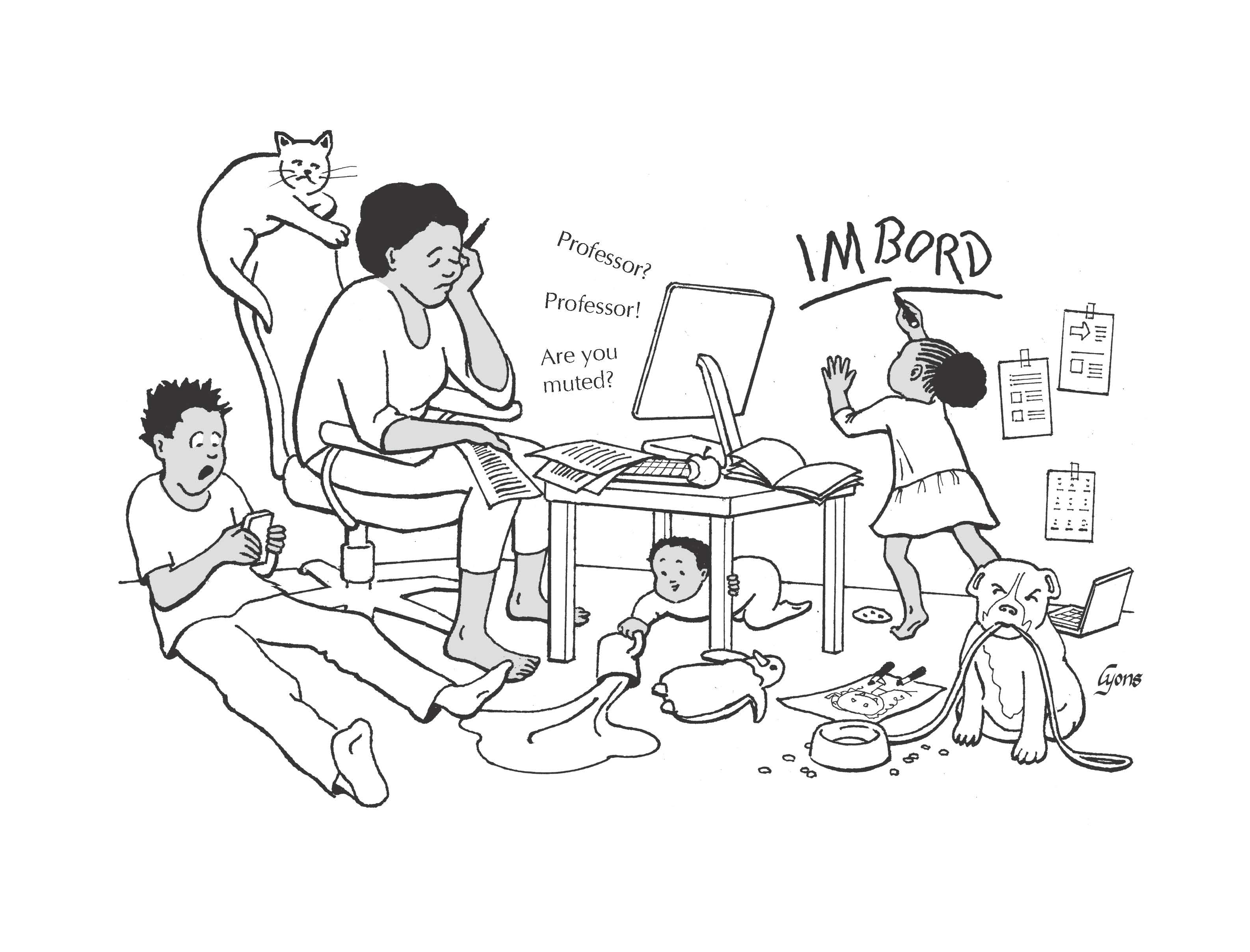
PANDEMIC IS AN opening for revolutionary thinking. It has forced us to realize that the things we take for granted — getting up and driving in to work, sending children off to school on the bus, walking the aisles of the grocery store, or packing ourselves into crowded bleachers — can change dramatically overnight.
Even the most basic activities can, in a moment, turn 180 degrees, and we can learn to do them differently....
Building a Union Campaign
— an interview with Dawn Tefft
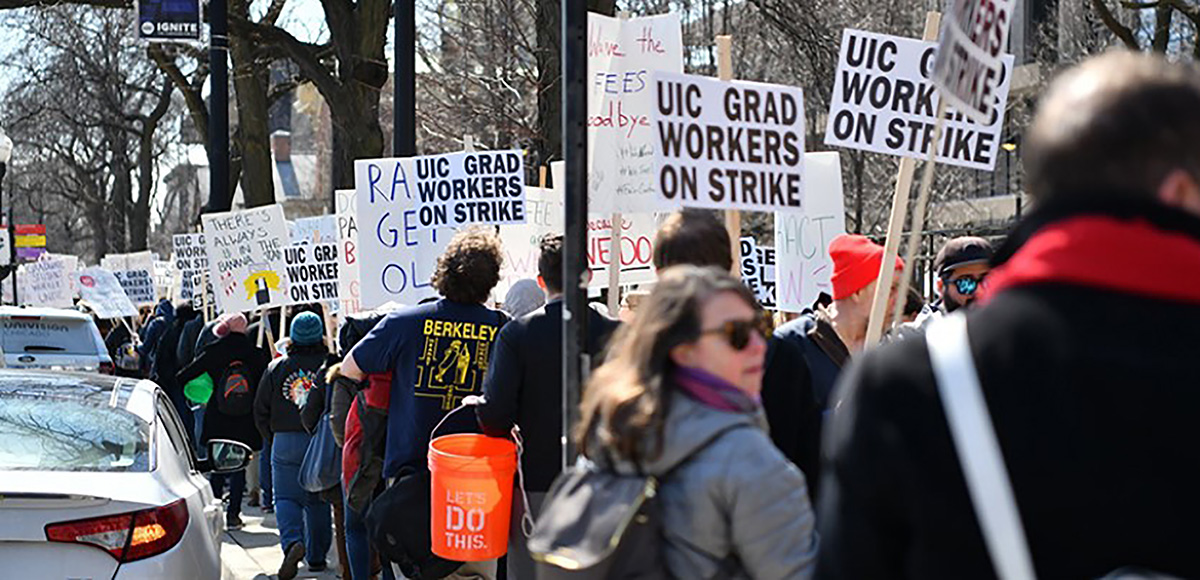
IN 2011, UNIONS and community members in Wisconsin demonstrated their outrage at governor Scott Walker’s anti-union legislation in daily protests and sit-ins. Dawn Tefft was then a graduate student at the University of Wisconsin-Milwaukee and active in her union....
Peru: Rising Up Against Corruption
— an intervew with Andrea Palacios
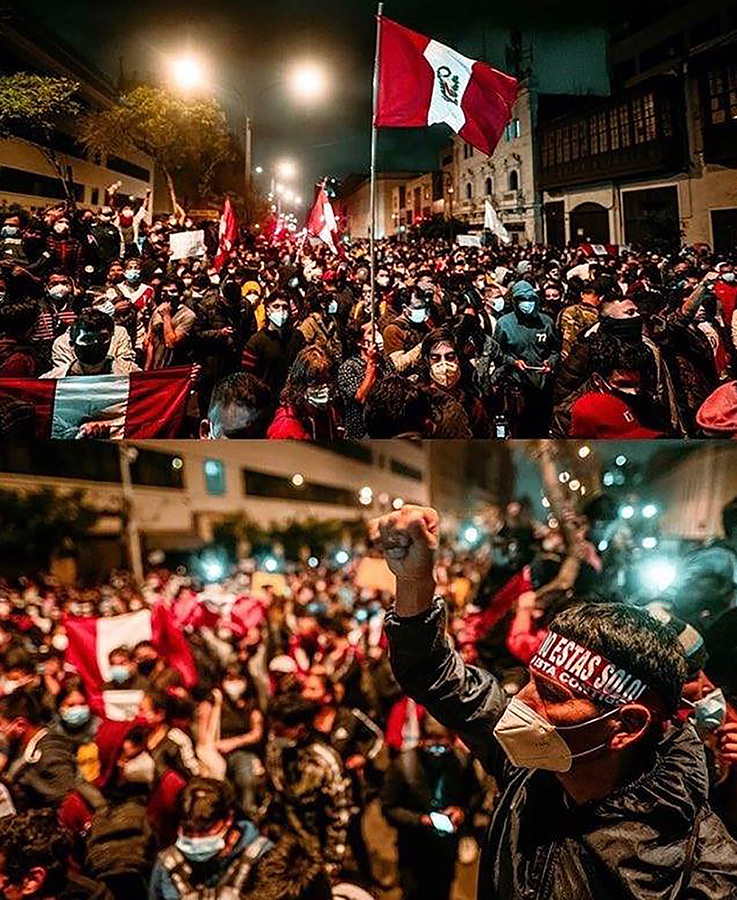
THE DRAMATIC RECENT events in Peru, barely covered by mainstream U.S. media, have seen a popular uprising of massive self-organized protests. In November the student-led demonstrations in Lima and other large cities were met by riot police equipped with water cannons, tanks, and helicopters.
Corruption has tainted the political elite for years. Elected president in 2016, Pedro Pablo Kuczynski, was forced to resign two years later over his failure to disclose ties to the corrupt Brazilian construction company, Odebrecht....
Behind the Indian Farmer's Strike
— Aditya Nigam
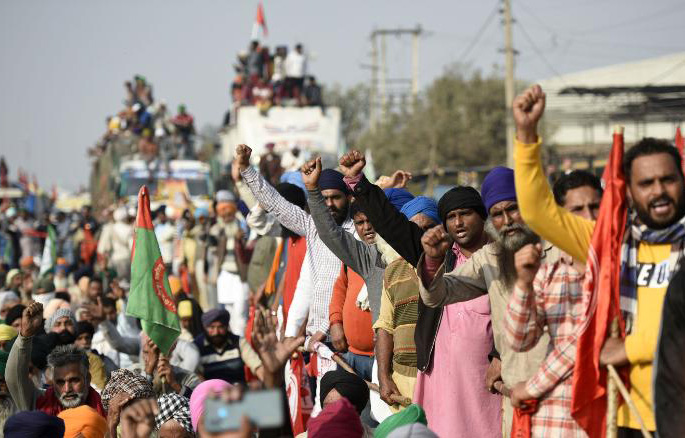
PERHAPS THE LARGEST general strike in history, farmers in India are in revolt against a set of new laws imposed by the government of Prime Minister Narendra Modi. The following is an edited excerpt from a lengthy article on the history of the struggle, “India: The Farmers’ Struggle and the Agrarian Crisis,” published by Europe Solidaire Sans Frontieres.
THE GOVERNMENT’S NEW laws seek to hand over agriculture to the corporate sector — which will effectively mean destruction for a large mass of farmers. Naturally they are up in arms in what is perhaps the most determined struggle of the last four decades....
Black Resistance
New Challenges for African Americans
— Malik Miah
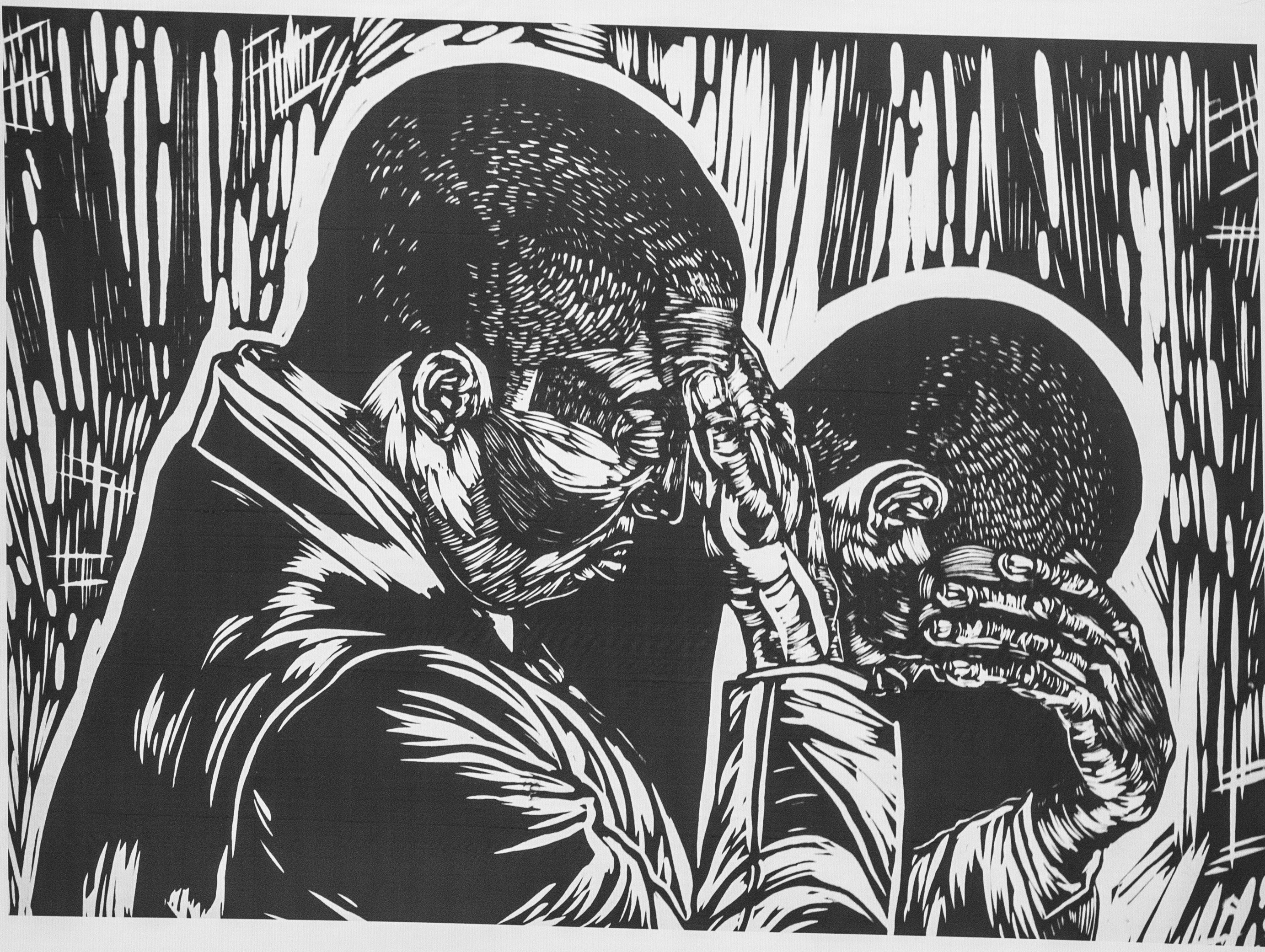
WHAT DO AFRICAN Americans face with the new government of Democrats Joe Biden and Kamala Harris? After four years of a far-right regime that denied science and medicine in favor of death and profits, disproportionately destroying Black and oppressed minorities’ lives, the answer for most is more a hope to lessen structural discrimination than it is high expectations for fundamental change....
Freedom Struggle a Labor Struggle, Then & Now
— Robin D. G. Kelley
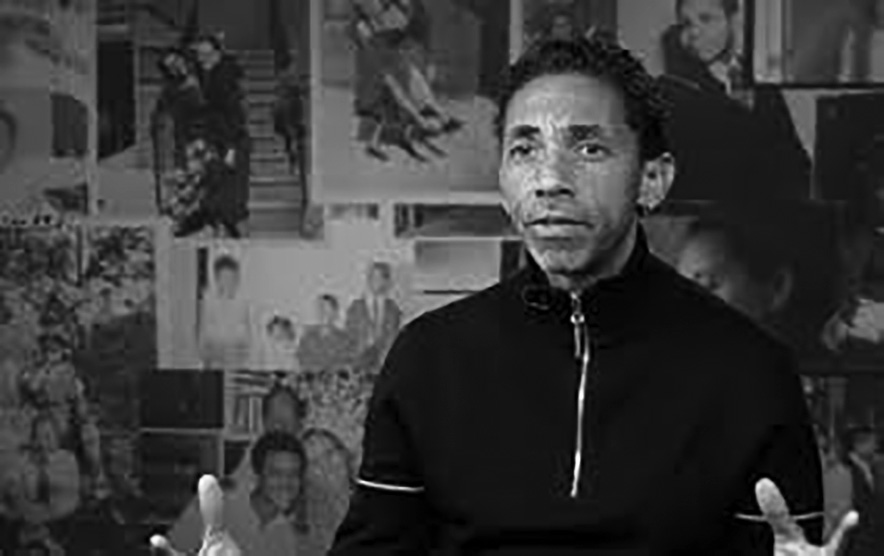
ROBIN D.G. KELLEY, THE Gary B. Nash professor of American History at UCLA, gave this presentation to a New York City DSA Labor webinar on a panel with Michael Goldfield, whose book The Southern Key is also reviewed in this issue of Against the Current. Professor Kelley’s first book was Hammer and Hoe: Alabama Communists During the Great Depression (1990). His subsequent works include the award-winning biography Thelonious Monk: The Life and Times of An American Original (2009) and studies of African American and African culture and cross-fertilization.
AS WE THINK, again, about the role of organized labor in the long Black freedom struggle, it is worth noting that in India at this very moment 250 million farmers, workers, students and allies have joined in what had been a three-month long protest against the Modi government’s neoliberal agricultural policies....
James Baldwin for Our Time
— Mary Helen Washington
Begin Again:
James Baldwin’s America and Its Urgent Lessons For Our Own
By Eddie S. Glaude, Jr.
Crown Publishing, 2020, 272 pages.
James Baldwin:
Living in Fire
By Bill V. Mullen
Pluto Books, 2019, 256 pages.
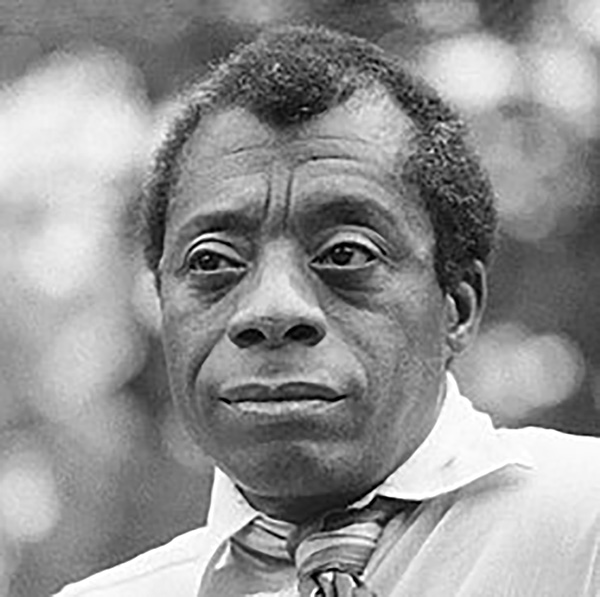
BOTH EDDIE S. Glaude’s Begin Again: James Baldwin’s America and Its Urgent Lessons For Our Own and Bill V. Mullen’s James Baldwin: Living in Fire are organized around what Mullen calls the “arc of change, reflection, and evolution” in Baldwin’s life story.
Both are motivated, to some extent, by a renewed interest in Baldwin since the emergence of the Black Lives Matter movement, which was started, I note, by three Black women-Alicia Garza, Opal Tometi, and Patrisse Cullors.
Baldwin seems to be everywhere these days....
The American Caste System
— Malik Miah
Caste:
The Origins of Our Discontents
By Isabel Wilkerson
Random House, 2020, 477 pages, $32 hardback.
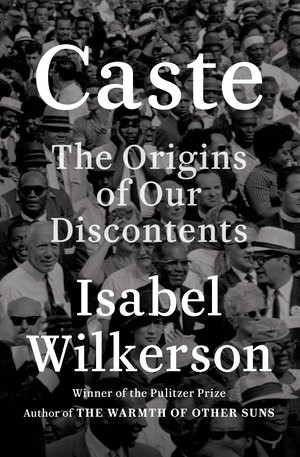
“The worst disease is the treatment of the Negro. Everyone who freshly learns of this state of affairs at a mature age feels not only the injustice, but the scorn of the principle of the Fathers who founded the United States that ‘all men are created equal.’ [I could] hardly believe that a reasonable man can cling so tenaciously to such prejudice.”
— Albert Einstein in 1946 (Quoted, Wilkerson, 377)
THE BRILLIANT PHYSICIST and Nobel Laureate Albert Einstein left Germany in December 1932, one month before Adolph Hitler took power. In the United States he was astonished to see the way African Americans were treated....
The U.S. South and Labor's Fate
— Alex Lichtenstein
The Southern Key
Race, Class, and Radicalism in the 1930s and 1940s
By Michael Goldfield
Oxford University Press, 2020, 432 pages, $49.95 hardcover.
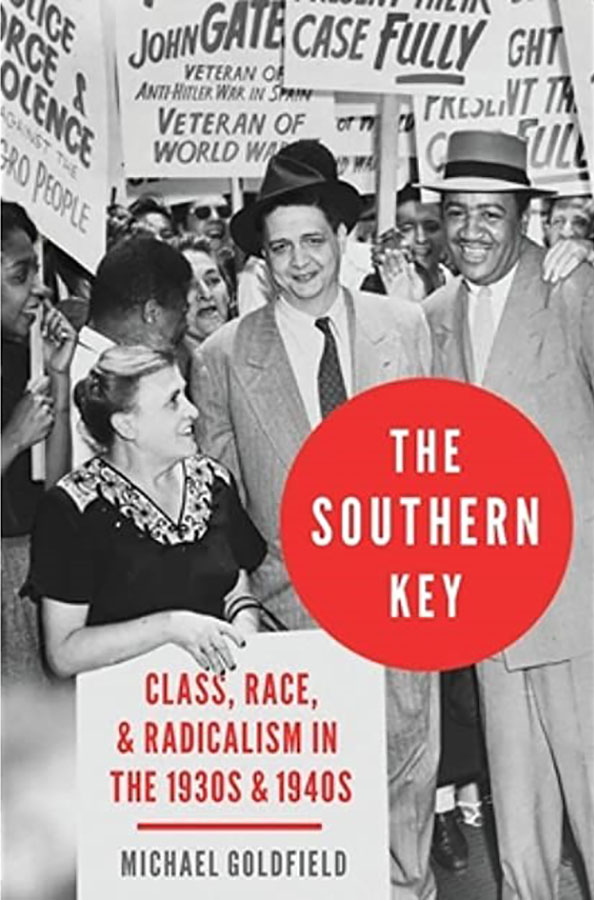
IN THE SOUTHERN KEY, Michael Goldfield draws on more than three decades of scholarship, both his own and that of many others, to elucidate a deceptively straightforward point: The failure of the American labor movement to organize sustainable interracial unions in the South in the 20th century had long-term deleterious effects on the American labor movement and political economy, many of which remain with us today.
Just look at a recent COVID map, which traces directly onto maps charting slavery, sharecropping, segregation, disfranchisement, incarceration rates, 1948 votes for Strom Thurmond, 1964 votes for Barry Goldwater, and much else besides....
Recovering William Monroe Trotter
— Derrick Morrison
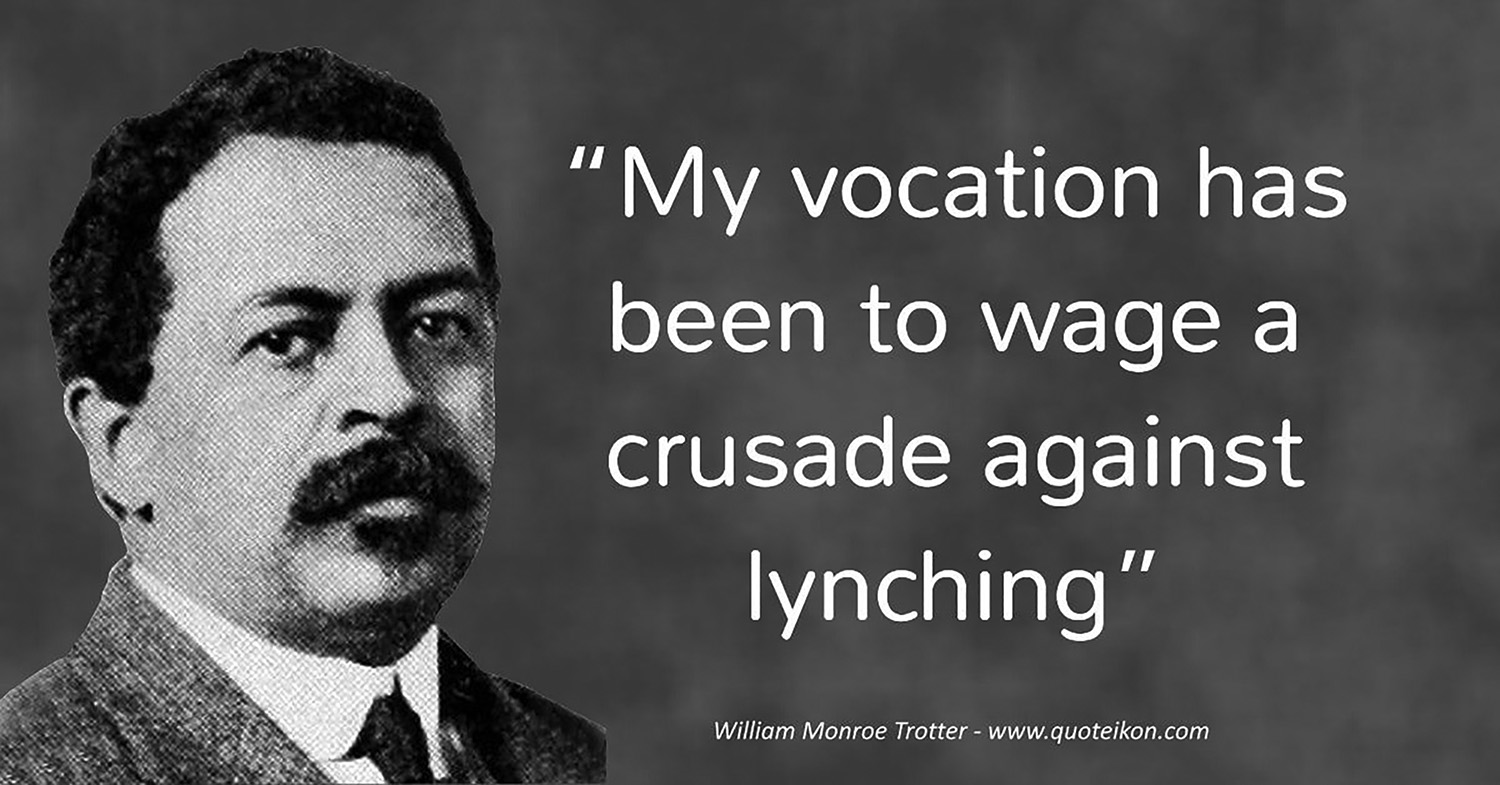
WILLIAM MONROE TROTTER, a too little-known pioneer of the fight for civil rights in the South and civil equality in the North, is captured brilliantly in Kerri K. Greenidge’s book, Black Radical, The Life and Times of William Monroe Trotter (New York: Liveright Publishing Corporation, a division of W.W. Norton & Company, 2020).
Among the highlights of the trail Trotter blazed:
“On May 13, 1902, the [Boston] Guardian sponsored a rally at Faneuil Hall in support of the Fourteenth Amendment and congressional investigation of southern disfranchisement. The event called itself the Crumpacker Rally in honor of the Indiana Republican Edgar D. Crumpacker, who wanted Congress to reduce southern representation in those states where black citizens were denied the right to vote....
Reviews
The Trauma of Domestic Violence
— Giselle Gerolami
No Visible Bruises:
What We Don’t Know About Domestic Violence Can Kill Us
By Rachel Louise Snyder
Bloomsbury Publishing, 2019, 320 pages, $28 hardcover.
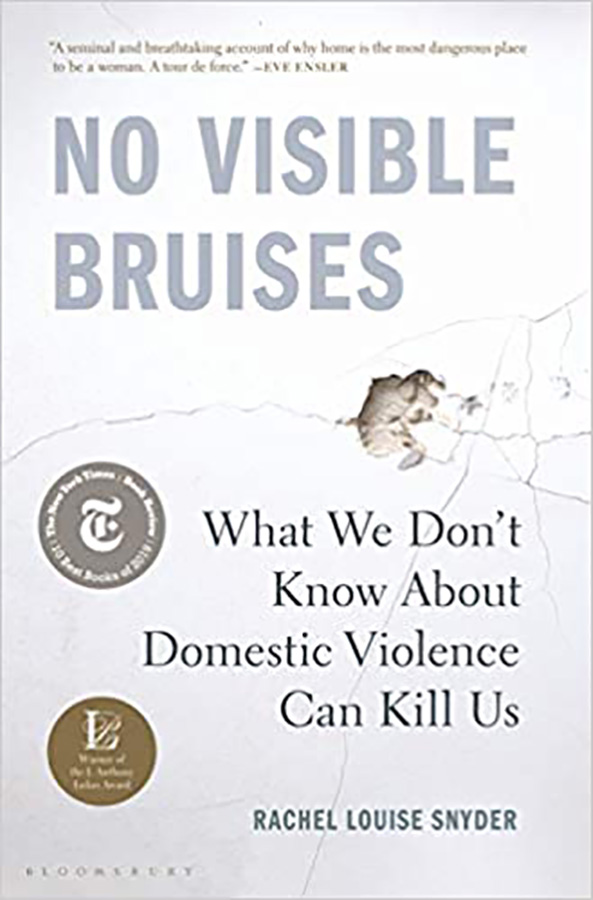
IN 2010, JOURNALIST Rachel Louise Snyder returned to the United States after years of working in Cambodia, Afghanistan, Niger and Honduras and other countries. One day a friend’s sister, Suzanne Dubus, shared with Snyder that the work she was doing involved predicting homicides from domestic violence.
This was a wakeup moment for Snyder, who began to question all her previous assumptions about domestic violence, and it would lead her to research and write the book No Visible Bruises: What We Don’t Know About Domestic Violence Can Kill Us. The book received widespread acclaim and was chosen as one of The New York Times Book Review’s “Ten Best Books of 2019.”....
When Science Meets Capital
— Guy Miller
The Tragedy of American Science:
From Truman to Trump
By Clifford D. Conner
Haymarket Books, 2020, $26.95 hardcover.
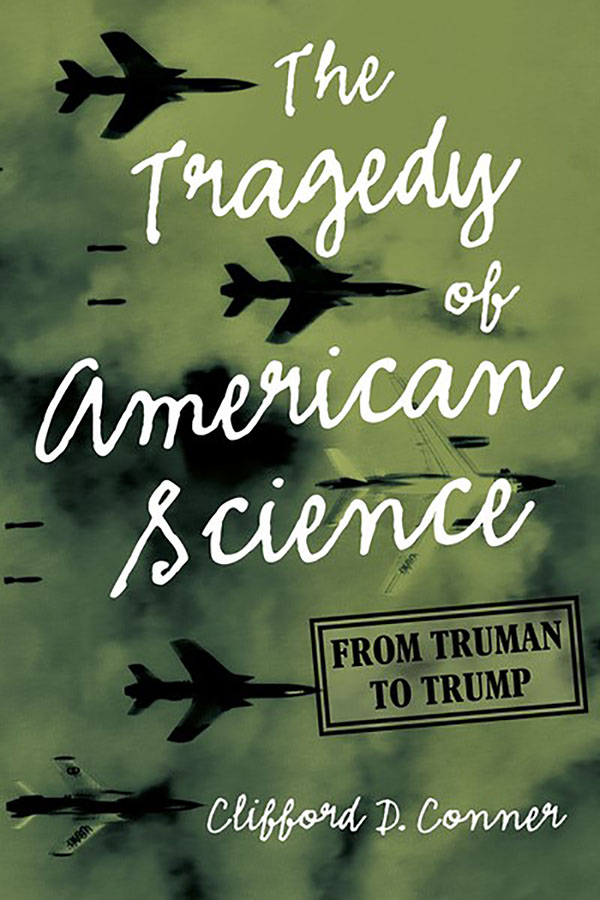
“WE’RE NUMBER ONE!” has been the battle cry of American exceptionalism for decades. In the best of times it rings arrogant and boastful. Now, as the COVID-19 pandemic approaches the year mark and the U.S. death toll climbs over 250,000, the chant has taken on the ghostly pallor of delusional.
As New York Times columnist Maureen Dowd summed it up, “The Shining City on the Hill is an ugly pile of rubble.”
The Tragedy of American Science (TAS) was ready to go to the printer just as the pandemic was gaining a foothold in the United States. The publisher, Haymarket Books, wisely decided to postpone the release date to allow Clifford Conner to write....
Hong Kong: An Uprising and Its Fate
— Promise Li
Hong Kong in Revolt
The Protest Movement and the Future of China
By Au Loong-yu
Pluto Press, 2020, 177 pages plus notes and index, $22.95 paperback.
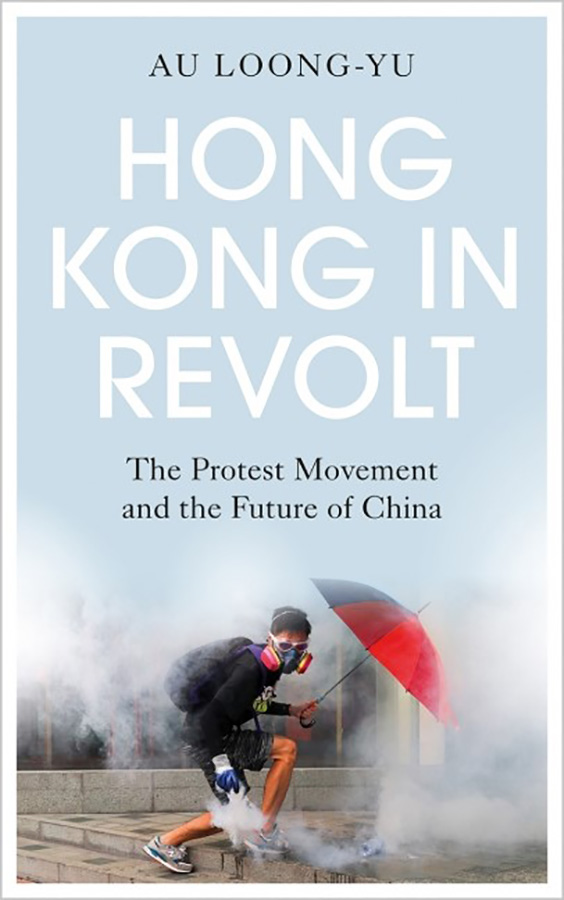
“Two events in 2019 marked the turning point for both mainland China and Hong Kong: the 2019 revolt and the Covid-19 pandemic. They lay bare the fundamental contradictions of Greater China accumulated throughout the ‘reform and opening’ period. The two events also started to change the status quo and put the one-party dictatorship in China to an even greater test.” (Hong Kong in Revolt, 138)
HONG KONG’S EXPLOSIVE year-long struggle, although one of the most live-streamed and broadcast uprisings in modern history, is still characterized by confounding obscurity in its details. Is it a right-wing movement? Is it a national independence struggle? Who were the different actors?...
Indonesia as Testing Ground
— Allen Ruff
The Jakarta Method
Washington’s Anticommunist Crusade
& the Mass Murder Program that Shaped Our World
By Vincent Bevins
New York: Public Affairs/Hatchett, 2020, $28 hardcover.
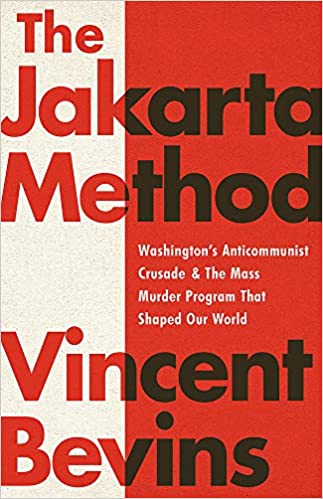
AT THE START of October 1965, a U.S.-aided and abetted military coup overthrew Indonesia’s left-leaning Sukarno government. Not just an account of that tragic episode and the subsequent slaughter of a million or more actual and alleged communists and the horrific imprisonment of another million, veteran journalist Vincent Bevins’ The Jakarta Method is something far more.
This book recounts how what transpired across the sprawling archipelago nation became a model for U.S.-assisted rightist terror across the Global South. It explores how the blood-drenched annihilation of Indonesia’s left provided a blueprint for, in the author’s words, a “monstrous international network of....
Charting New Paths: The Comintern in 1922-1923
— Tom Twiss
The Communist Movement at a Crossroads:
Plenums of the Communist International’s Executive Committee, 1922-1923
Edited by Mike Taber; translated by John Riddell
Leiden: Brill, 2018; Chicago: Haymarket Books, paperback edition
published 2019, 796 pages, $50.
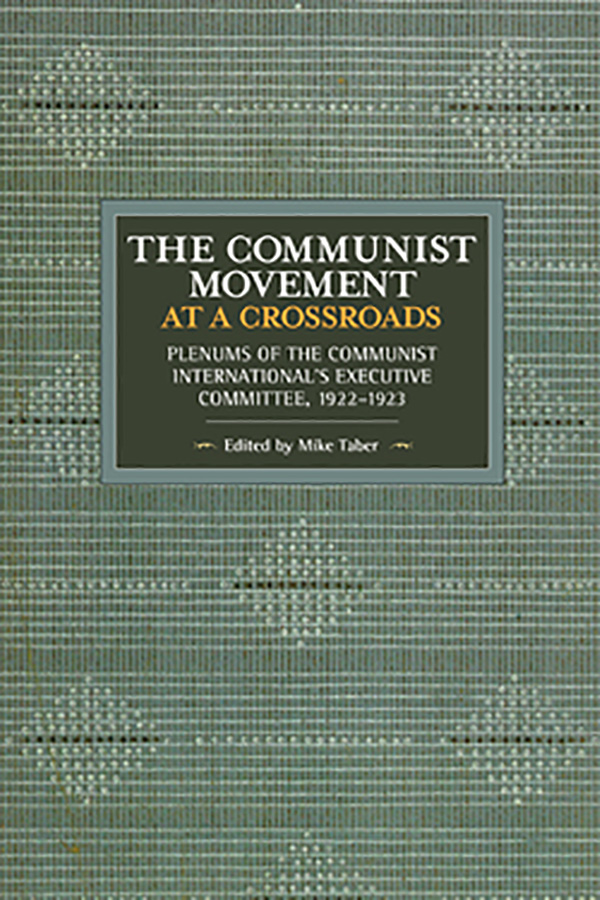
IN 1922-1923 THE Communist International found itself in shifting terrain that presented fresh opportunities and new dangers. The clearing of smoke from European battlefields and barricades had revealed devastated economies and exhausted workers.
Years of war and revolution had left European workers exhausted. But by 1922 they were slowly regaining their combativeness in the face of mounting pressure from their ruling classes
Following two years of fascist terror in Italy, Benito Mussolini’s appointment as prime minister was stimulating the spread of....
Livio Maitan: A Life in the Revolution
— John Barzman
Memoirs of a Critical Communist
Towards a History of the Fourth International
By Livio Maitan
Preface by Daniel Bensaid, translated by Gregor Benton
edited with and introduction by Penelope Duggan
Resistance Books, IIRE, Merlin Press, 2019, 456 pages, $28.
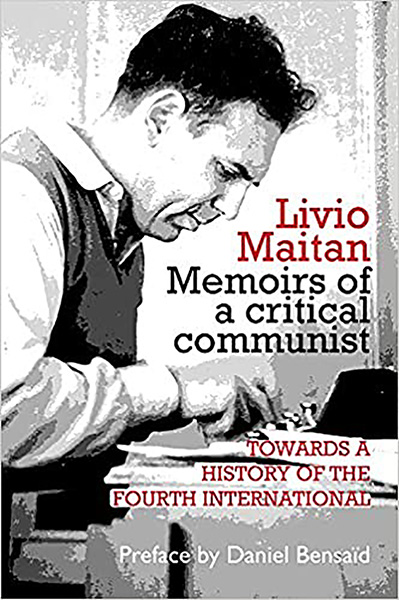
LIVIO MAITAN WAS born in Venice in 1923; he was politically active from 1943 until his death in 2004. During this period, both the world capitalist system and the bureaucratic countries that escaped its grip generated great discontents, social movements and crises. Unfortunately none of these upsurges was able to establish a society that was democratic and egalitarian in a lasting way.
As a young socialist in postwar Italy, Livio could see the problem as it was crystallizing into the Cold War.(1) When he met the Fourth International in Paris in April 1947, he decided to dedicate his life to making socialist democracy a real perspective....
Cultural Notes
On the Life of Justin Townes Earle
— Alexander Billet

THROUGHOUT HIS CAREER, critics would comment on Justin Townes Earle’s apparent lack of politics. It wasn’t an observation out of nowhere. Justin was the son of fellow recording artist Steve Earle, the “hardcore troubadour,” a musician whose proud embrace of socialist politics complicates the widespread (and inaccurate) association of country music with conservative politics.
To be sure, the younger Earle, who....

